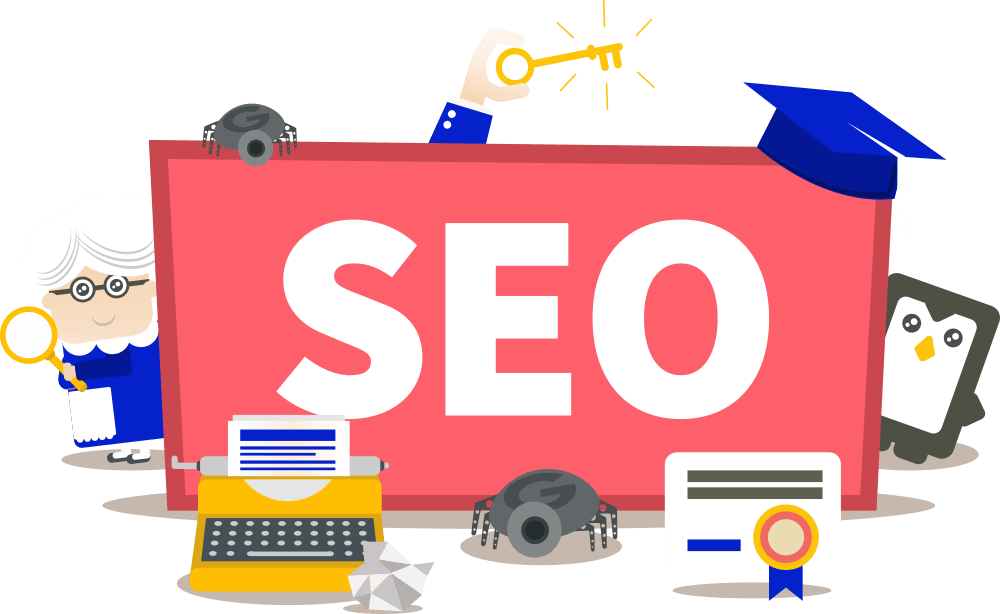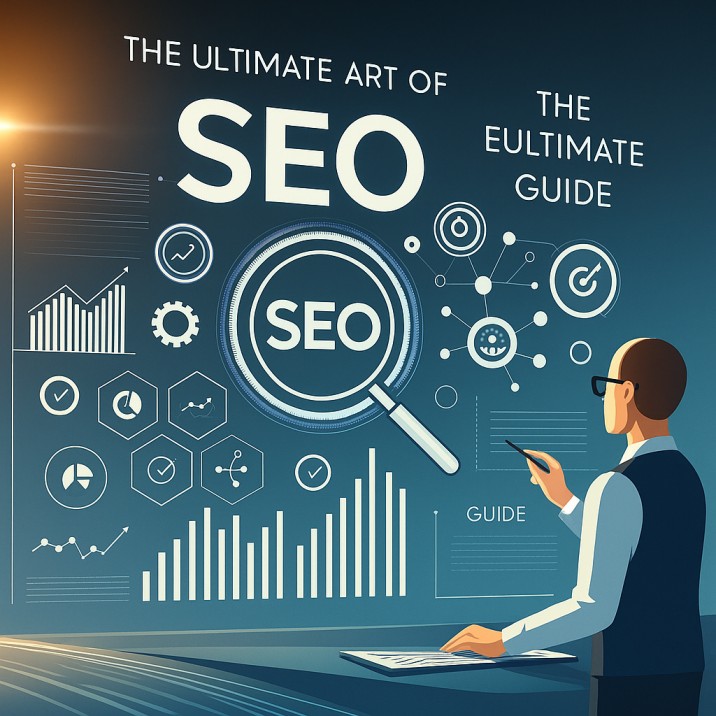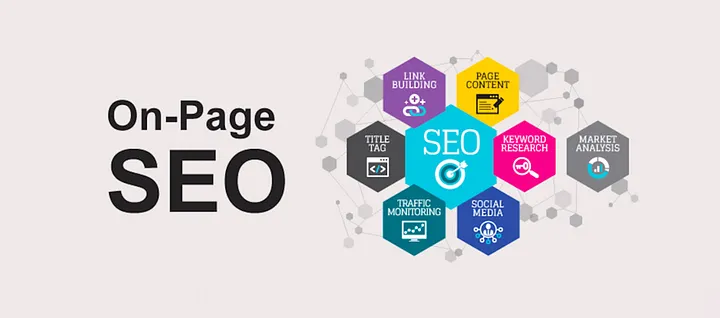Table of Contents
Search Engine Optimization (SEO) is one of the most important digital marketing strategies in today’s online landscape. It’s the process of improving your website so it ranks higher on search engines like Google, Bing, or Yahoo, ultimately attracting more visitors without paying for ads. In 2025, SEO remains a cornerstone of online success, but it has evolved dramatically due to AI-powered search, voice search growth, and Google’s algorithm updates.
If you’re just getting started, SEO may sound intimidating—but don’t worry. In this beginner’s guide, we’ll break down what SEO is, how it works, and why it matters more than ever in 2025.

What Is SEO?
SEO stands for Search Engine Optimization—the practice of optimizing your web pages so search engines understand your content and show it to the right audience.
How Search Engines Work
Search engines use bots (often called crawlers) to scan web pages. Then, they store this information in a massive index. When a user searches for something, the search engine’s algorithm decides which results are the most relevant and useful, ranking them from most to least important.
SEO Goals
- Increase organic traffic (visitors coming from unpaid search results)
- Improve online visibility
- Attract targeted audience
- Build trust and authority in your niche
The Three Main Pillars of SEO
To understand SEO better, you need to know its three core components.
1. On-Page SEO
This involves optimizing the content and structure of your website.
- Keyword Research: Finding search terms your audience is using.
- Meta Tags: Optimizing title tags and meta descriptions for click-throughs.
- Header Tags (H1, H2, H3): Organizing your content for both readers and search engines.
- Internal Linking: Connecting relevant pages within your site.
- Content Quality: Writing useful, engaging, and original content.
2. Off-Page SEO
This is about building your site’s credibility outside its own pages.
- Backlinks: Links from other trusted websites pointing to yours.
- Brand Mentions: Being talked about online even without direct links.
- Social Signals: Engagement on social media platforms.
3. Technical SEO
This ensures search engines can properly crawl and index your site.
- Website Speed: Faster sites rank higher.
- Mobile-Friendliness: Optimizing for smartphones and tablets.
- Secure Sockets Layer (SSL): Having HTTPS for security.
- XML Sitemaps: Helping search engines navigate your website.
- Structured Data (Schema Markup): Helping search engines understand your content.
Why SEO Matters in 2025
In 2025, SEO is no longer just about adding keywords—it’s about providing value, satisfying user intent, and keeping up with AI-driven search algorithms. Here’s why it’s critical:
1. Search Is More Competitive Than Ever
Millions of websites are competing for the same audience. Without SEO, your site will be invisible to potential customers.
2. Paid Ads Are Getting More Expensive
While pay-per-click (PPC) ads can bring quick results, they can be costly. SEO provides long-term organic traffic at a lower cost.
3. AI-Powered Search Engines Are Smarter
Google’s AI tools like Search Generative Experience (SGE) change how search works. Websites with high-quality, expert-level content are prioritized.
4. Voice Search Is Growing
With devices like Alexa, Siri, and Google Assistant, voice search queries are becoming more common. SEO helps you target these conversational queries.
5. User Experience Is Key
Google now ranks websites based on Core Web Vitals—factors like loading speed, interactivity, and visual stability.

See also
- Hostinger Review 2025: Is It the Best Budget Hosting?
- Hostinger for WordPress: Full Setup + Performance Guide
- Top 10 Common SEO Mistakes New Website Owners Make
Step-by-Step SEO Guide for Beginners in 2025
Here’s a beginner-friendly roadmap to start your SEO journey.
1: Understand Your Audience
Before creating content, know who you’re writing for. Define:
- Demographics (age, location, interests)
- Problems they want solved
- Keywords they use
2: Do Keyword Research
Tools like Google Keyword Planner, Ahrefs, or SEMrush can help you find relevant search terms.
- Short-tail keywords: e.g., “SEO tips” (high competition)
- Long-tail keywords: e.g., “SEO tips for small businesses in 2025” (lower competition, higher conversion)
3: Create High-Quality Content
Your content should be:
- Informative and original
- Well-structured with headings
- Optimized for keywords without stuffing
- Enhanced with images, videos, and infographics
4: Optimize On-Page Elements
- Include your keyword in the title, meta description, first 100 words, and headers.
- Use short, descriptive URLs (e.g., example.com/seo-for-beginners).
- Add internal and external links.
5: Improve Technical SEO
- Compress images for faster loading.
- Ensure mobile responsiveness.
- Use HTTPS for security.
- Submit your XML sitemap to Google Search Console.
6: Build Quality Backlinks
Strategies include:
- Guest posting on reputable websites
- Creating share-worthy infographics
- Networking with influencers in your niche
7: Monitor and Adjust
Use Google Analytics and Google Search Console to track:
- Organic traffic growth
- Click-through rates
- Keyword rankings
Common SEO Mistakes Beginners Should Avoid
- Keyword Stuffing – Overusing keywords can hurt rankings.
- Ignoring Mobile Users – Most searches now come from mobile devices.
- Poor Site Speed – A slow site leads to higher bounce rates.
- Low-Quality Content – Thin, unhelpful content won’t rank.
- Neglecting Analytics – Without tracking, you can’t improve.
Future Trends in SEO for 2025 and Beyond
- AI Content Assistance: Tools like ChatGPT will help create and optimize content faster.
- Search Generative Experience (SGE): Google will answer more questions directly in search results.
- Voice and Visual Search: People will search using pictures and voice instead of typing.
- E-A-T (Expertise, Authoritativeness, Trustworthiness): Google will prioritize expert-written and trustworthy content.
- Sustainable SEO: Ethical, user-focused strategies will outperform quick hacks.

Conclusion
SEO in 2025 is about understanding your audience, creating valuable content, and optimizing for both humans and search engines. It’s not a one-time task—it’s an ongoing process that can drive long-term traffic, brand awareness, and sales.
If you’re a beginner, start small:
- Learn keyword research
- Write quality articles
- Focus on user experience
- Monitor and adapt
By consistently applying these principles, you’ll build a strong online presence that stands the test of time—even in the fast-changing digital world of 2025.
Call to Action (CTA):
Ready to take your first step into SEO? Start by optimizing one page of your website today—choose a keyword, improve your title, write a better meta description, and watch your rankings grow.


